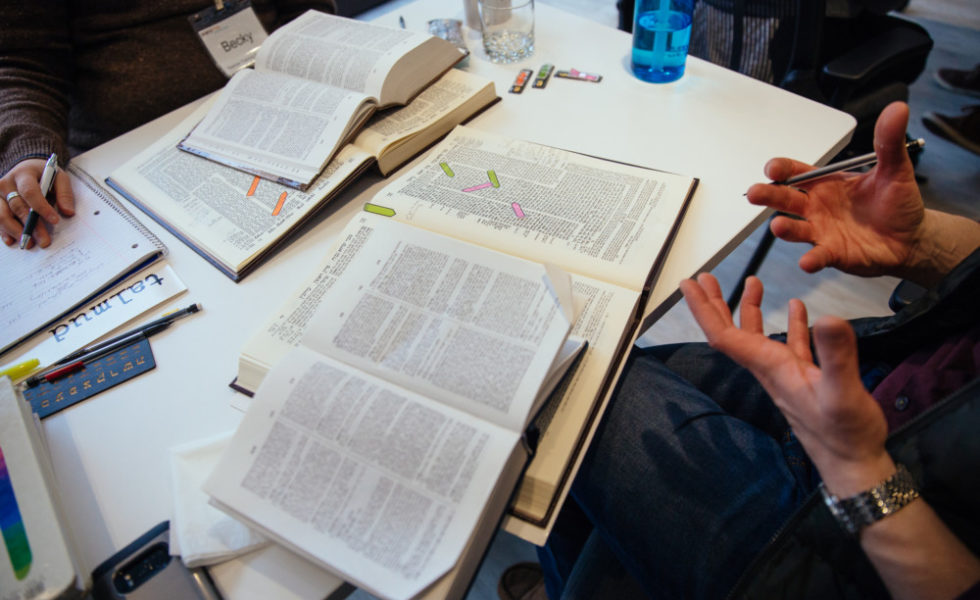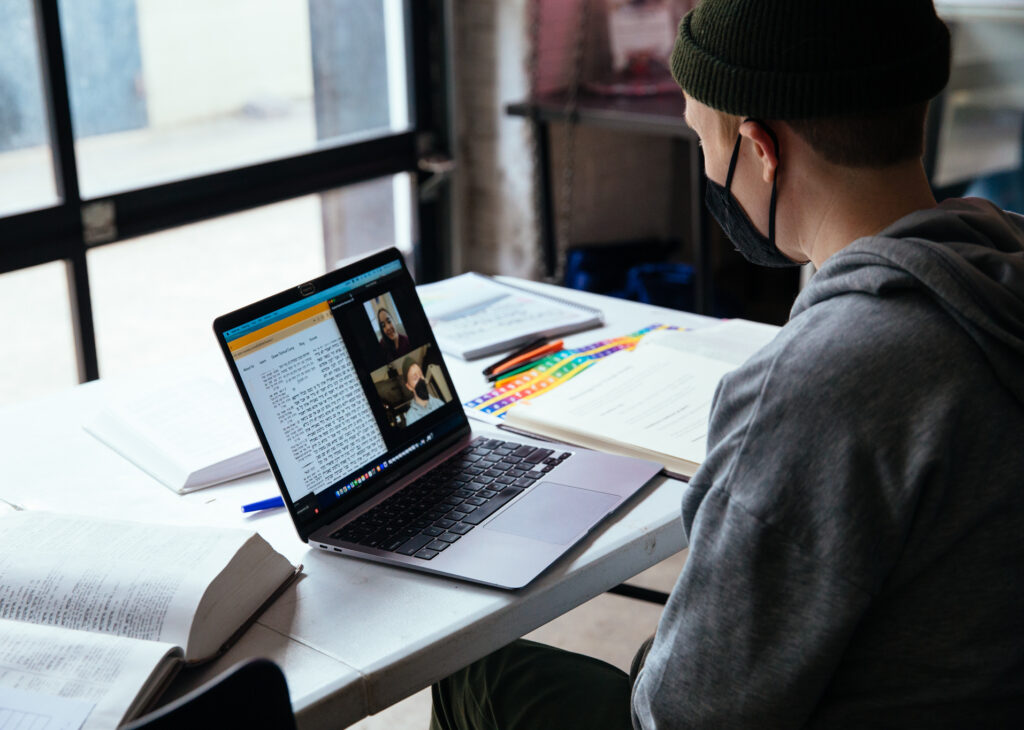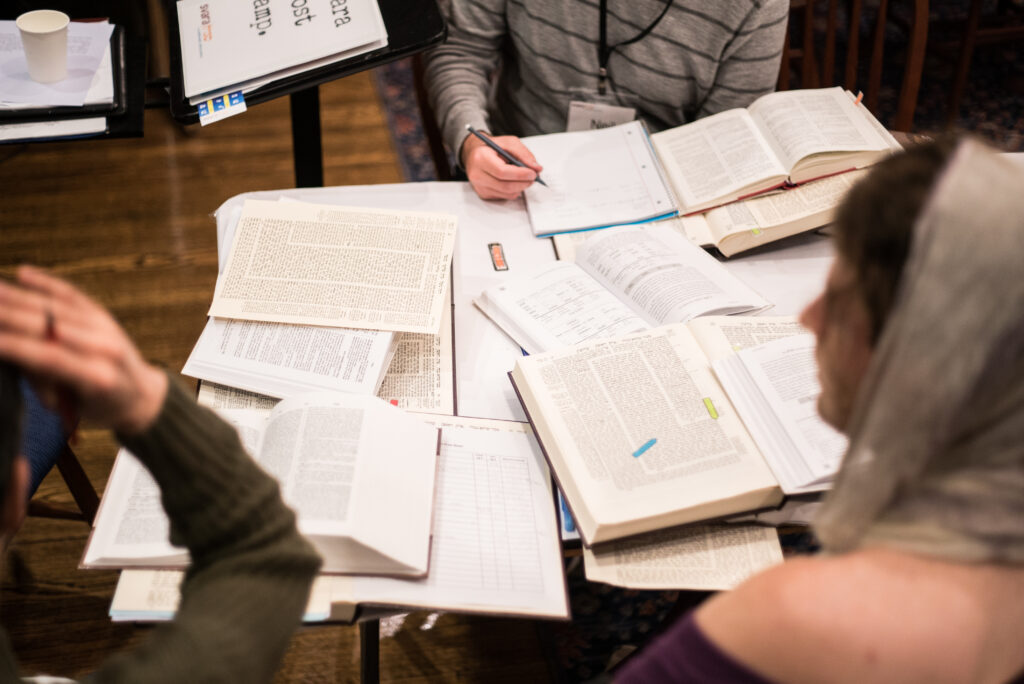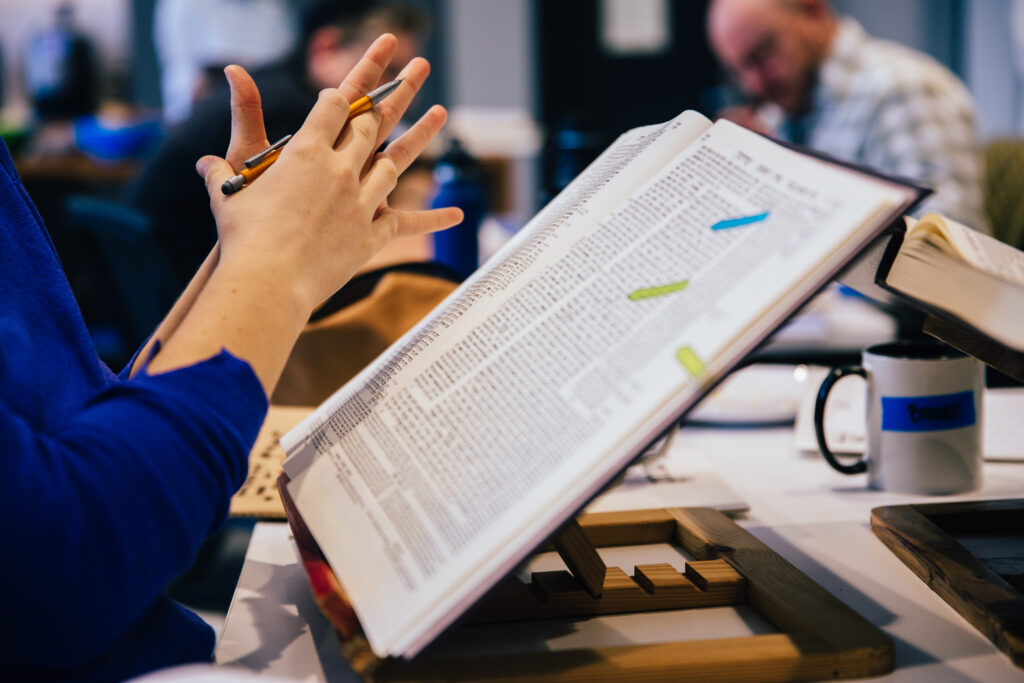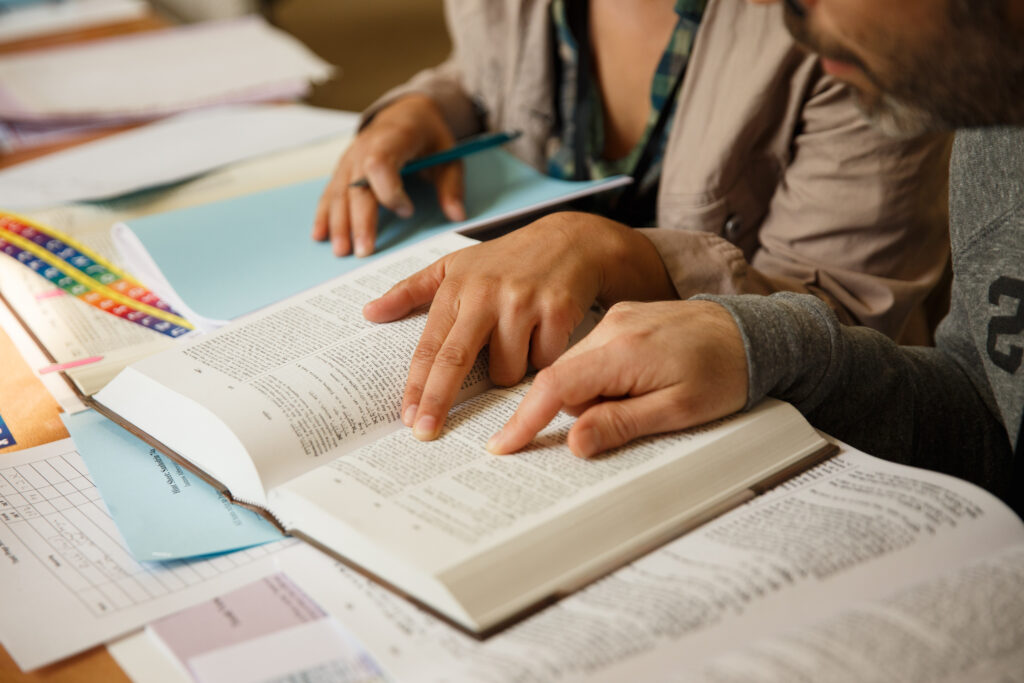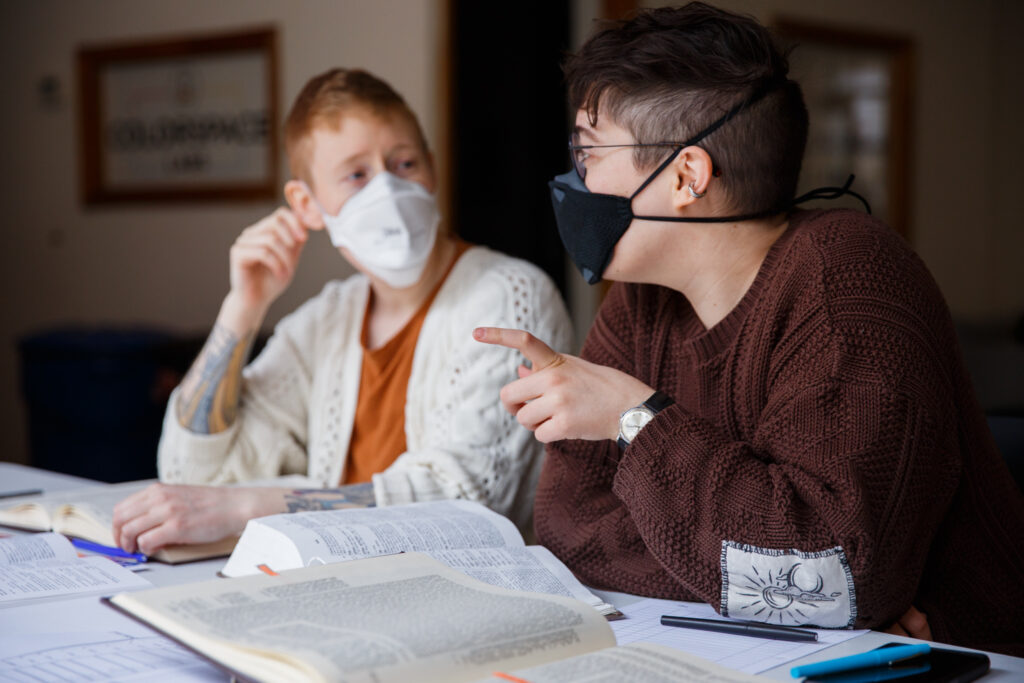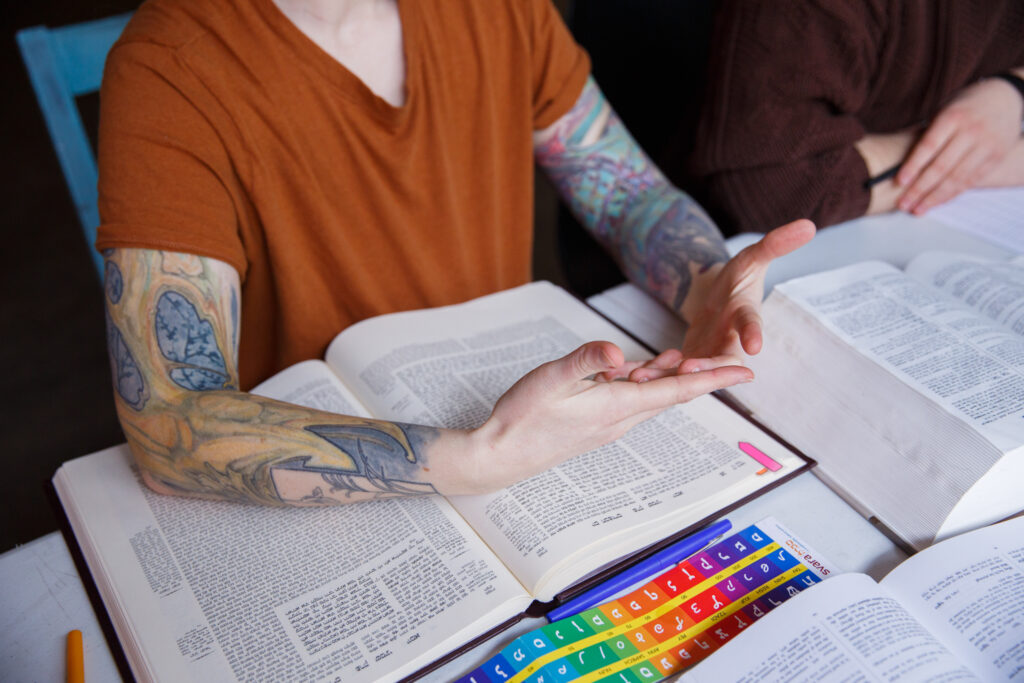With gratitude to Beyn Kodesh l’Chol “Learning for Liberation” Bet Midrash for deepening my understanding of this text.
As Passover approaches, many of us are creating or editing haggadot, figuring out if and how we want to engage in virtual seders, making shopping lists, and otherwise preparing for the holiday. An exploration of one of the most foundational stories of our tradition, Passover invites us to experience the Exodus from Egypt as if we were coming out of Egypt ourselves. The story of the Exodus becomes a framework for our personal journeys, asking each of us to consider where we are coming from and, if we are lucky, where we are going. While the story of the Exodus doesn’t change, we change and grow, reflecting and carrying different aspects of this story and history with us in different moments.
The Passover Haggadah teaches “וְכָל הַמַּרְבֶּה לְסַפֵּר בִּיצִיאַת מִצְרַיִם הֲרֵי זֶה מְשֻׁבָּח / …and all who increase in their telling of Yetziyat Mitzrayim, the Exodus from Egypt, behold they are praiseworthy.” It is in the increase, the embellishment, the sinking in to the story, the feeling, the experience of liberation that brings us to the deep identification the Haggadah desires. We are not only to recall the Exodus but to experience it as if we were there, as if we are there now. Immediately following this teaching, the Haggadah offers examples of this injunction (how do we increase our telling of this story?), and lifts up a teaching from the Mishnah in Masechet Berakhot.
מַזְכִּירִין יְצִיאַת מִצְרַיִם בַּלֵּילוֹת
We are obligated to mention the Exodus from Egypt at night (Mishnah Berakhot 1:5)
This mishnah appears in the midst of a discussion about the recitation of the Shema, specifically the third paragraph, which mentions both tzitzit (ritual fringes) and the Exodus from Egypt. Assuming we wouldn’t mention tzitzit at night because we can’t see them, this mishnah comes to teach us that we are still obligated to recite this paragraph in the nighttime because even though we need not mention tzitzit, we must recall the Exodus at night.
At first, this mishnah seems to understand the obligation to mention the Exodus at night as a liturgical obligation: the recollection of Yetziyat Mitzrayim implies that we should refer to a specific text, namely the Shema itself, in our evening prayers. But in our own lives, we might expand this to considering the ways in which our spiritual legacy of moving from slavery to freedom, from constriction to expansiveness, informs our identities as Jews.
Our sages model this expansive reading of mentioning Yetziyat Mitzrayim as the mishnah continues:
אָמַר רַבִּי אֶלְעָזָר בֶּן עֲזַרְיָה, הֲרֵי אֲנִי כְּבֶן שִׁבְעִים שָׁנָה, וְלֹא זָכִיתִי שֶׁתֵּאָמֵר יְצִיאַת מִצְרַיִם בַּלֵּילוֹת, עַד שֶׁדְּרָשָׁהּ בֶּן זוֹמָא, שֶׁנֶּאֱמַר (דברים טז) לְמַעַן תִּזְכֹּר אֶת יוֹם צֵאתְךָ מֵאֶרֶץ מִצְרַיִם כֹּל יְמֵי חַיֶּיךָ.
יְמֵי חַיֶּיךָ, הַיָּמִים.
כֹּל יְמֵי חַיֶּיךָ, הַלֵּילוֹת.
וַחֲכָמִים אוֹמְרִים, יְמֵי חַיֶּיךָ, הָעוֹלָם הַזֶּה.
כֹּל יְמֵי חַיֶּיךָ, לְהָבִיא לִימוֹת הַמָּשִׁיחַ:
Rabbi Elazar ben Azaryah said: “Behold, I am almost a seventy-year old man and I have not succeeded in [understanding why] the Exodus from Egypt should be mentioned at night, until Ben Zoma explained it from a verse (Deuteronomy 16:3): ‘In order that you may remember the day you left Egypt all the days of your life.’
‘The days of your life’ refers to the days.
‘All the days of your life’ refers to the nights.
And the sages say: ‘the days of your life’ refers to this world.
‘All the days of your life’ includes the days of the Messiah. (We are obligated to mention the Exodus from Egypt at night (Mishnah Berakhot 1:5)
In this mishnah, Rabbi Elazar ben Azariah invokes a teaching of Ben Zoma. Reading a text from Deuteronomy, Ben Zoma and the rabbis view the addition of the word “kol / all” as an opening for interpretation. Each seeks to expand the moments in which we would recall the Exodus. Ben Zoma teaches that we should recall the Exodus during the day and that “all” includes the night. The Sages offer an alternative interpretation choosing to read the verse as referring to this world and the word “all” as including the world to come. Through his interpretation of this verse, Ben Zoma explains that liberation is present throughout the entirety of our days (during the day, at night, always). The Sages, on the other hand, read this verse as teaching us that we should recall liberations of the past in order to understand our present and future experiences.
The gemara leans into these differing interpretations, opening up questions about the role of the Exodus narrative in Jewish tradition, and exploring its connection to their own stories of liberation. For the Sages, the Talmud teaches, the imagined ingathering of exiles serves as their primary vision of liberation. The recollection of Yetziyat Mitrayim serves as a powerful reminder of both our personal interactions with marginalized communities and the miraculous power that exists to subvert the world order. We will take care of the stranger because we are strangers. We believe that the structures of our world can be overturned because we have witnessed the plagues and the splitting of the sea.
In sharing their vision of liberation, the Sages call us to speak ours aloud. In placing the recollection of the Exodus as an enduring commandment, the Torah calls us to find a place for it in our own lives, ensuring that it continues to hold meaning. The 20th century poet Muriel Rukeyer wrote, “Now we turn to memory, we search all the days we had forgotten for a tradition that can support our arms in such a moment. If we are free people, we are also free to choose our past, at every moment to choose the tradition we will bring to the future. We invoke a rigorous positive, that will enable us to imagine our choices, and to make them.”
This year, what past will you choose to bring us into the future?
DIG INTO THE SUGYA
We’ve assembled all of the goodies you’ll need to bring the bet midrash to you. Grab a chevruta, learn on your own, or bring this text to your seder!
[maxbutton id=”6″ url=”https://svara.org/sugyot-berakhot-12b-13a/” text=”DOWNLOAD THE TEXT” ]

